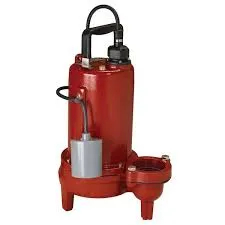English
- Afrikaans
- Albanian
- Amharic
- Arabic
- Armenian
- Azerbaijani
- Basque
- Belarusian
- Bengali
- Bosnian
- Bulgarian
- Catalan
- Cebuano
- Corsican
- Croatian
- Czech
- Danish
- Dutch
- English
- Esperanto
- Estonian
- Finnish
- French
- Frisian
- Galician
- Georgian
- German
- Greek
- Gujarati
- Haitian Creole
- hausa
- hawaiian
- Hebrew
- Hindi
- Miao
- Hungarian
- Icelandic
- igbo
- Indonesian
- irish
- Italian
- Japanese
- Javanese
- Kannada
- kazakh
- Khmer
- Rwandese
- Korean
- Kurdish
- Kyrgyz
- Lao
- Latin
- Latvian
- Lithuanian
- Luxembourgish
- Macedonian
- Malgashi
- Malay
- Malayalam
- Maltese
- Maori
- Marathi
- Mongolian
- Myanmar
- Nepali
- Norwegian
- Norwegian
- Occitan
- Pashto
- Persian
- Polish
- Portuguese
- Punjabi
- Romanian
- Russian
- Samoan
- Scottish Gaelic
- Serbian
- Sesotho
- Shona
- Sindhi
- Sinhala
- Slovak
- Slovenian
- Somali
- Spanish
- Sundanese
- Swahili
- Swedish
- Tagalog
- Tajik
- Tamil
- Tatar
- Telugu
- Thai
- Turkish
- Turkmen
- Ukrainian
- Urdu
- Uighur
- Uzbek
- Vietnamese
- Welsh
- Bantu
- Yiddish
- Yoruba
- Zulu
Telephone: +86 13120555503
Email: frank@cypump.com
Dec . 21, 2024 06:37 Back to list
Effective Solutions for Cesspool Pump Maintenance and Performance Enhancement
Understanding Cesspool Pumps Importance and Functionality
Cesspool pumps play a crucial role in the management of waste and sewage systems, especially in areas where traditional sewer lines are not accessible. Understanding the function and importance of these pumps is essential for homeowners and business owners alike who depend on them for effective waste disposal.
What is a Cesspool?
A cesspool is a pit or a tank that is used for the temporary storage of wastewater and sewage. Unlike a septic tank, which is designed to treat sewage and allow for the percolation of gray water into the surrounding soil, a cesspool does not treat wastewater. Instead, it simply holds it until it can be pumped out. Cesspools are often used in rural or underdeveloped areas where traditional sewer systems are not available.
The Role of Cesspool Pumps
Cesspool pumps are submersible pumps that are specifically designed to remove the waste stored in a cesspool. They function by sucking up the sewage and transporting it to a treatment facility or a designated disposal area. This is essential, as failing to remove waste can lead to severe sanitation issues, environmental hazards, and even health risks.
There are two main types of pumps used for cesspool pumping centrifugal pumps and diaphragm pumps. Centrifugal pumps use rotating blades to create a flow of liquid, making them efficient for moving large volumes of water. Diaphragm pumps, on the other hand, use a flexible diaphragm to create a vacuum, allowing them to handle thick, viscous fluids, which is often the case with sewage.
Maintenance and Monitoring
cesspool pump

Proper maintenance of cesspool pumps is critical to ensure they operate effectively
. Regular inspections can help identify potential problems before they escalate. Key maintenance tasks include checking for clogs, ensuring the electrical components are functioning correctly, and monitoring the overall condition of the pump.Homeowners should also be aware of the signs that indicate an issue with their cesspool or pump. These signs might include slow draining sinks or toilets, foul odors around the cesspool area, or unexpected wet spots in the yard, which could indicate a leak.
Environmental Considerations
Using cespool pumps responsibly is essential for environmental protection. Improper disposal of sewage can lead to contamination of groundwater and surrounding soil, which poses a significant risk to public health. Therefore, it is important to engage professional services for cesspool pumping and maintenance to ensure compliance with local regulations and standards.
Many regions have specific guidelines for cesspool management, including how often a cesspool should be pumped and what to do with the waste afterward. Adhering to these guidelines can help mitigate environmental risks and promote sustainable waste management practices.
Conclusion
Cesspool pumps are an integral part of waste management systems, particularly in areas without access to municipal sewer lines. Understanding their function and importance helps homeowners and businesses maintain their systems properly. Regular maintenance, awareness of potential issues, and adherence to environmental regulations are essential for ensuring that cesspool pumps operate efficiently and responsibly.
Investing in the right cesspool pumping service is vital for both functionality and environmental protection, making it a wise decision for those who rely on these systems. Whether you are a homeowner or a business owner, understanding the role of cesspool pumps will aid in managing your waste more effectively, ultimately contributing to a cleaner and healthier environment.
-
ISG Series Pipeline Pump - Chi Yuan Pumps | High Efficiency, Durable Design
NewsAug.01,2025
-
Advanced Flue Gas Desulfurization Pump with GPT-4 Turbo | Durable & Efficient
NewsJul.31,2025
-
ISG Series Vertical Pipeline Pump - Chi Yuan Pumps | Advanced Hydraulic Design&Durable Construction
NewsJul.31,2025
-
ISG Series Vertical Pipeline Pump - Chi Yuan Pumps | Energy Efficient & Low Noise
NewsJul.31,2025
-
pipeline pump - Chi Yuan Pumps Co., LTD.|High Efficiency&Low Noise
NewsJul.31,2025
-
ISG Series Vertical Pipeline Pump - Chi Yuan Pumps Co., LTD.|High Efficiency, Energy Saving, Low Noise
NewsJul.30,2025










